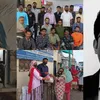Meet Sarita Chauray, a visually-impaired judo champion who dreams of winning an Olympic medal
Hailing from Hoshangabad, Madhya Pradesh, Sarita Chauray trains as a judoka with the help of Sightsavers India, and has won national and international medals – including at the 2019 Commonwealth Judo Championship.
Portuguese writer and Nobel Prize winner Jose Saramago once wrote in his book Blindness,
“Perhaps only in a world of the blind will things be what they truly are.”
India is home to 20 percent of the global blind population – the largest in the world. As per the National Programme for Control of Blindness, the prevalence of blindness in the country was around 1 percent, with a projected 24 million people living with some form of visual impairment.
But blindness is not and should not be the be-all and end-all of one’s life goals. As proven by some of India’s many community leaders who have overcome stigma and restrictions imparted by visual impairment. They are leaders such as Sudha Patel, who in 1995 was elected India’s youngest female blind sarpanch; Shekhar Naik, who led India’s national blind cricket team to multiple victories and was awarded the Padma Shri in 2017; or Srikanth Bolla, an Indian industrialist who was named by Forbes magazine in its list of 30 under 30 in 2017.
Adding to that list is Sarita Chauray, a medal-winning judoka.
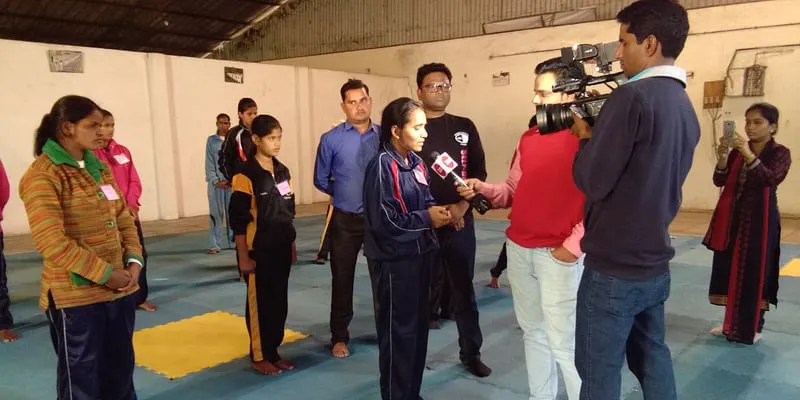
Judoka Sarita Chauray being interviewed by the media
Sarita’s story
Hailing from Hoshangabad, Madhya Pradesh, Sarita has been blind from birth and is one of six siblings. Her father is a labourer.
An athlete since childhood, in 2017, she took part in a camp organised by the NGO Sightsavers India, to train blind judoists.
But training in the combative sport isn’t always easy, especially for para-athletes with visual impairment. A contact body sport, it requires athletes to perform complex moves – including taking the opponent down to the ground, pinning them, and submitting them into a choke.
“In the beginning, training was tough but our coach guided us well. From 2017 to 2018, I used to practice regularly at home as well to get selected during one of the camps for state and national championships,” Sarita recalls in a conversation with SocialStory.

Sarita Chauray
She won her first bronze medal at the 6th National Blind and Para Judo Championships in 2018 in the 44 kg junior category. This motivated her to take part in trials in Gorakhpur in the same year, where she got selected to play for the country.
In 2019, she represented India and won bronze at the Commonwealth Judo Championship for the visually-impaired in Birmingham, UK.
Though she has had to pause her training due to coronavirus-induced lockdown, she has dreams of winning an Olympic medal and playing for India again.
“I’m currently doing my final year BA from Mata Jijabai Government Girls PG College, Indore, and will pursue MA after. I want to play further at the international level, and will start preparing for 2024 Summer Olympics in Paris, when the coronavirus crisis is over,” she adds.
She believes that training at the national and state level – such as that facilitated by Sightsavers India – is crucial for her to pursue her dreams.
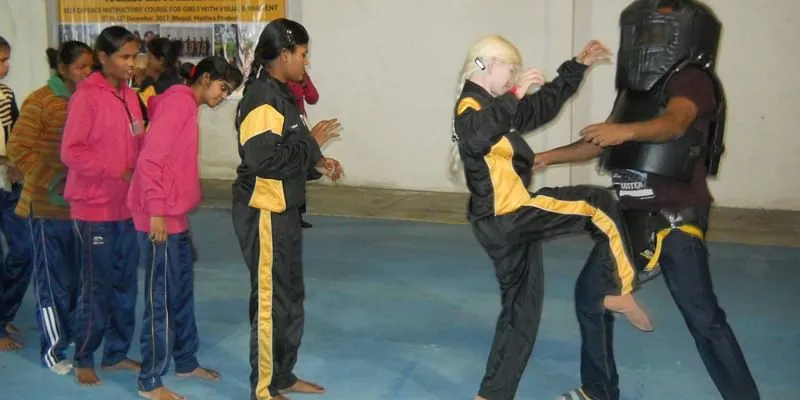
A self-defence camp organised by Sightsavers India
Light at the end of the tunnel
Sightsavers is a global development organisation that has been working in India since 1966 to eliminate avoidable blindness and to ensure that people who are irreversibly blind are supported adequately to lead independent lives with dignity.
The Delhi-based NGO works in 100 districts across eight states of India in the field of eye healthcare, and brings educational support, counselling, training, and leadership development to visually-impaired people.
Jayashree Kumar, Programme Manager – Madhya Pradesh, Sightsavers India, has been working with the organisation since 2008.
“In every state, we have an MoU with the government to mobilise communities to reach and strengthen district hospitals, which is our core mission. Governments have their own rural outreach programmes but eye health is not considered a priority, as the general understanding is that people don’t die from blindness. Sightsavers has created an environment where govt prioritises eye health by increasing budgetary allocation. We are looking to tie up with the central government as well. Instead of developing our own parallel programmes, we are working to integrate with govt programmes to impact more lives,” she explains.
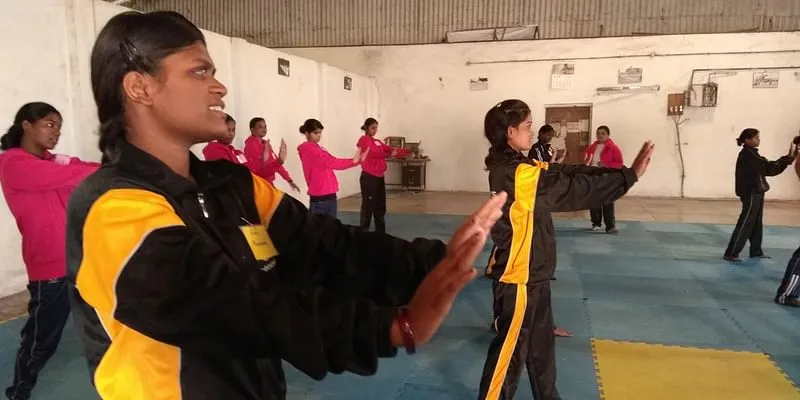
A judo camp organised by Sightsavers India
To enable a wider reach of its eye healthcare services, the NGO has been working on six programmes.
1. Rural Health Programme - to create awareness, provide quality eye health services and eliminate avoidable blindness among the rural population.
2. School Eye Health Programme - to screen children in government schools to identify and prevent eye diseases and vision impairments among children.
3. Urban Eye Health Programme - ensures comprehensive and sustainable eye health mechanisms for the urban slums of India.
4. RAAHI-National Trucker’s Eye Health Programme - to work with overworked trucker community to ensure road safety.
5. Inclusive Education Programme - to promote a positive and enabling environment in schools, families as well as communities to support the holistic education of children with visual impairment.
6. Social Inclusion Programme - to focus on economic empowerment, strengthening Disabled People’s Organisations (DPOs), and creating an enabling environment.
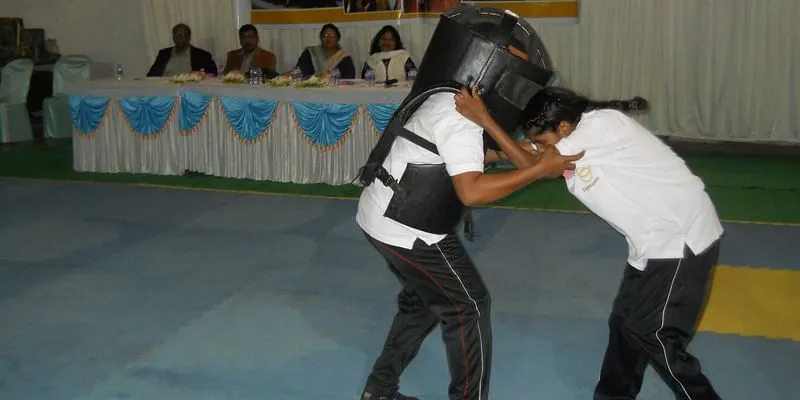
Girls practicing Judo at a training camp organised by Sightsavers India
Jayashree comes with 15 years of experience in working on women’s reproductive health, she realised that visually-impaired women and girls lack the self-confidence and self-esteem to deal with everyday issues.
“While working with adults and girls in the sphere of reproductive health, I realised that these girls are facing a lot of fears in their own communities and that prompted me to organise self-defence camps. More than 60 girls have been trained in self-defence in Madhya Pradesh, and they developed self-confidence and improved their body postures to play at the state, national and international level,” she says.
She says such programmes help visually-impaired women and girls, who are often deemed vulnerable, to come out of their homes and be a part of their communities. This also helps family members to realise the potential of their children.
Sarita, though, has only one advice for visually-impaired and para athletes,
“I want to say to my fellow athletes that they should keep on pursuing their goals and remain determined because one day, they will realise their dreams.”
Edited by Anju Narayanan




